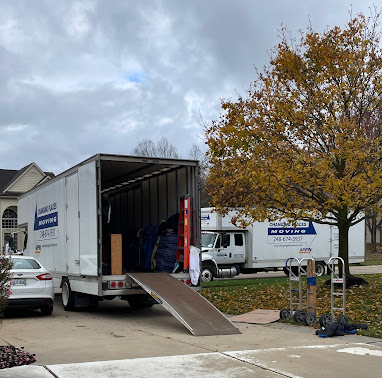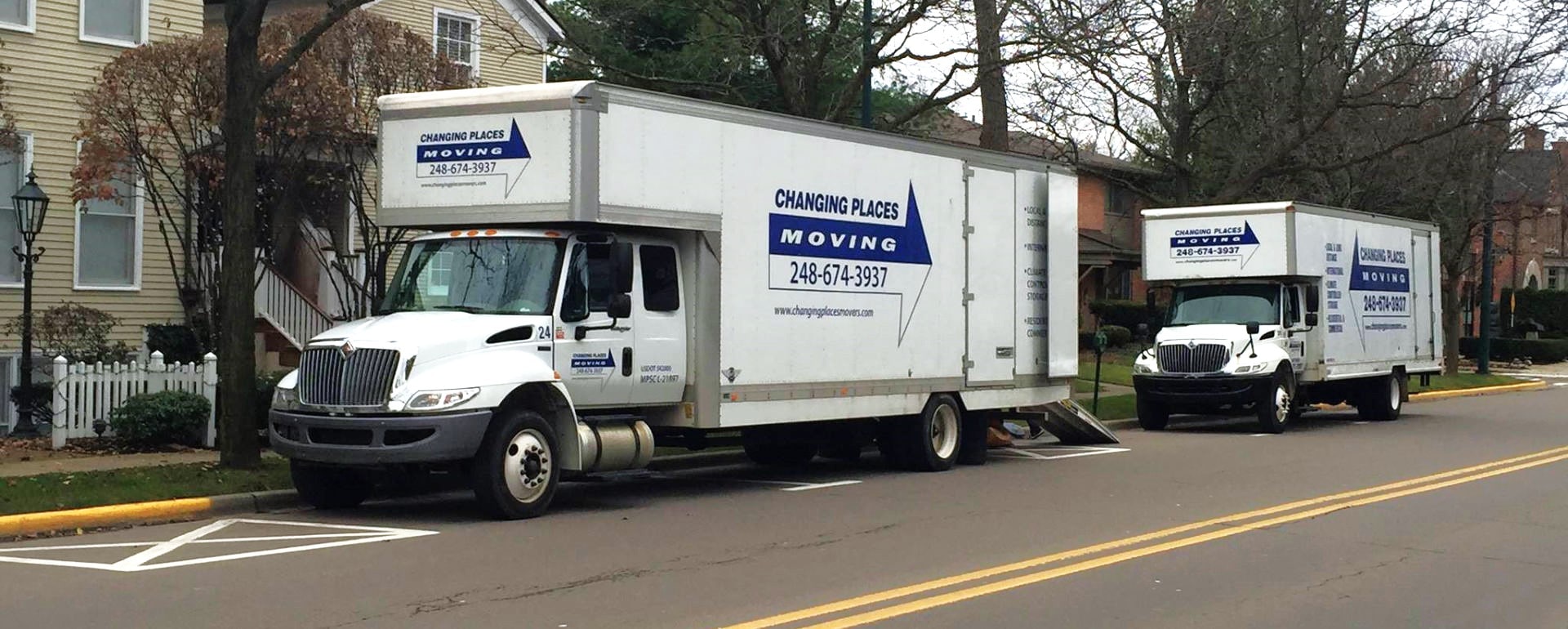
The decision to move brings both excitement and anxiety. A new chapter is approaching, but getting there takes a lot of planning and a bit of help.
Fortunately, investing in the right residential movers can ensure a smooth and stress-free transition.
At Changing Places Moving, we understand the importance of selecting a reliable moving company. In this guide, we’ll walk you through 8 simple yet essential steps to choosing the best home movers for your next relocation.
How to Choose the Best Moving Company
in 8 Simple Steps
- Research and Gather Recommendations
- Verify Credentials and Licensing
- Evaluate Their Services
- Compare Quotes
- Assess Experience and Expertise
- Review Customer Service
- Check for Complaints and Dispute Resolution
- Make Your Decision
Step 1: Research and Gather Recommendations
A. Ask for Recommendations
B. Check Online Reviews
C. Research Moving Companies
Ask for Recommendations
The first step on the moving checklist is to select a mover. It’s smart to check in with Google, but you should also ask your friends, family, and colleagues — particularly those who may have moved recently. Their firsthand experiences may lead to discovering trusted home moving companies with a proven track record.
Check Online Reviews
Gather feedback on potential residential movers from review websites, social media platforms, and forums. Reviews highlight their quality of service, reliability, and customer satisfaction, which empowers you to make an informed decision.
Research Moving Companies
Conduct thorough research to find a moving company with a strong reputation, years of experience, and positive customer feedback. A well-established brand with a history of reliability is more likely to provide a smooth moving experience.
Step 2: Verify Credentials and Licensing
A. Check Licensing Requirements
B. Verify Memberships
C. Confirm Insurance Coverage
Check Licensing Requirements
In the U.S., moving companies must comply with local and federal regulations. Verify their credentials through the Department of Transportation (DOT) or state regulatory agencies to ensure they meet industry standards.
Verify Memberships
Is the company a member of any professional organizations, like the American Moving & Storage Association (AMSA)? Membership in these organizations often indicates a commitment to industry best practices and ethical standards.
Confirm Insurance Coverage
Verify that the residential movers offer adequate insurance coverage to protect your belongings during the move. Understanding the types of insurance available and what is covered provides peace of mind in case of any unforeseen issues.
Step 3: Evaluate Their Services
A. Compare Services
B. Specialty Solutions
C. Customizable Options
Compare Services
A comprehensive moving company should offer services such as packing, loading, and unloading. Some companies also provide specialty services like moving fragile items or offering climate-controlled storage.
Specialty Solutions
If you have specific needs, check if the movers offer specialty solutions, such as moving delicate artwork or temporary storage. A moving company that can accommodate your unique requirements will make the process more convenient and efficient.
Customizable Options
Determine if the company offers customizable moving packages tailored to your needs. Flexibility in service options enables you to create a moving plan that fits your budget and requirements.
Step 4: Compare Quotes
A. Request Detailed Quotes
B. Compare Pricing Structures
C. Beware of Red Flags
Request Detailed Quotes
Request quotes from multiple companies and ensure they provide detailed estimates. A thorough quote should include all potential costs, such as labor, transportation, and any additional fees.
Compare Pricing Structures
Clarify the pricing structure of each company. Some movers charge based on weight, distance, or an hourly rate. By understanding how costs are calculated, you’re able to compare quotes more accurately and choose the best value for your money.
Beware of Red Flags
Be cautious of residential movers who offer unusually low estimates, as this may indicate hidden fees or subpar service. Reliable companies provide honest and transparent pricing without unexpected surprises.
Step 5: Assess Experience and Expertise
A. Confirm Their Experience in the Industry
B. Identify Their Expertise in Handling Special Items
C. Verify Their Professionalism and Training
Confirm Their Experience in the Industry
Look for residential movers with a proven track record and extensive experience in home moving. Companies with years of experience are likely to handle your move efficiently and professionally.
Identify Their Expertise in Handling Special Items
Ensure the movers have experience with any specialty items you need to transport, such as antiques or valuable electronics. Expertise in handling delicate and valuable items ensures they are moved safely and securely.
Verify Their Professionalism and Training
Check if the movers are professionally trained and adhere to industry best practices. Professionalism and proper training contribute to a higher quality of service and a smoother moving experience.
Step 6: Review Customer Service
A. Check for Responsive Communication
B. Ensure Transparency
C. Evaluate Their Customer Support
Check for Responsive Communication
Evaluate how promptly and effectively the company communicates with you. A responsive and communicative moving company keeps you informed and addresses any concerns throughout the process.
Ensure Transparency
Ensure that the residential movers provide clear and honest information about their services, costs, and policies. Transparency builds trust and guarantees that you fully understand what to expect during your move.
Evaluate Their Customer Support
Consider the availability of customer support before, during, and after the move. Reliable customer support enhances your overall experience by assisting with any issues or questions that arise.
Step 7: Check for Complaints and Dispute Resolution
A. Review Complaints
B. Dispute Resolution Policies
Consider Unresolved Complaints
Look for any unresolved complaints or negative feedback about the company’s handling of issues. A history of unresolved complaints may indicate potential problems with their service.
Review Dispute Resolution Policies
Understand the company’s procedures for handling disputes or damages. Knowing how they address issues provides reassurance that your belongings are in good hands.
Step 8: Make Your Decision
A. Compare Final Choices
B. Ask for a Written Contract
C. Confirm the Move Date and Details
Compare Final Choices
Weigh the pros and cons of your top choices based on your research, quotes, and reviews. Consider all factors to make an informed decision, including cost, services, and customer feedback.
Ask for a Written Contract
Ensure that you receive a written contract outlining all details, including services, costs, and responsibilities. A written agreement prevents misunderstandings and ensures that both parties are on the same page.
Confirm the Move Date and Details
Verify the moving date, time, and any additional arrangements with the chosen residential movers. By confirming these details, you’ll help to ensure a smooth and organized moving day.
Find the Best Residential Movers in Michigan at
Changing Places Moving
If you’re preparing for a relocation, it’s crucial that you choose the best residential movers for a successful and stress-free move. By following these 8 simple steps, you’ll find a reliable moving company that meets your specific needs.
At Changing Places Moving, we’re committed to providing unparalleled home moving services to make your transition as smooth as possible. To discover how we ensure a seamless experience from start to finish, contact our team today.


